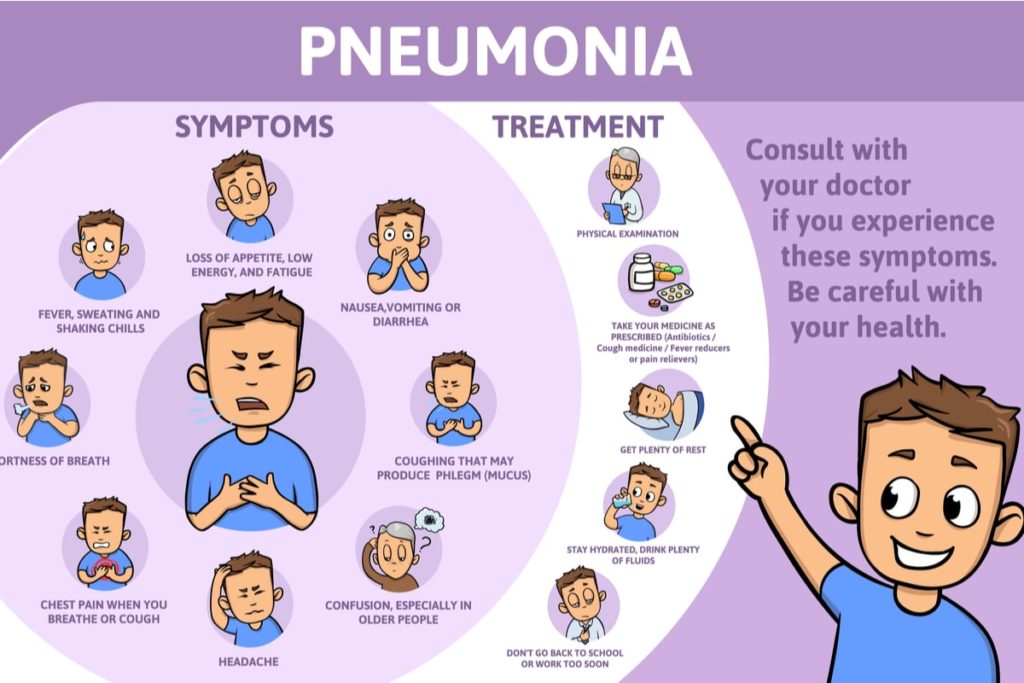When we were kids, Pneumonia was taken to mean “cold in the lungs.” The Igbos would say “oyi bara ya ahu,” which directly translates as “cold has entered his body/chest.” Thus during a cold weather, if you were running around playing without covering yourself up with a sweatshirt, your Moma will come yelling ” I choro ka oyi baa gi ahu; do you want cold to enter your body [and give you pneumonia]?” That was when we were kids.
Now that we are adults, things haven’t changed that much; you still see adults, referring to Pneumonia as cold, and associating it with the same. Example, if you diagnose someone as having Pneumonia, in defence he’d says; “but I didn’t sleep out in the cold.”
Question is, if Pneumonia was due to cold weather, why then is it more prevalent in the Tropics than in the Temperate regions? Why is the burden of Pneumonia much more in Africa, with all its scorching climatic conditions, and far less in the West, even with winter coming around every other season? Surely those that live in the Arctics should be shaking hands, and winning and dinning with the Pneumonias; shouldn’t they? However, it isn’t so.
What is Pneumonia?
Pneumonia is an INFECTION, a CHEST INFECTION, involving the lower respiratory tract, from the smallest air ducts to the air sacs of the lungs. It involves inflammation of the lungs, with resultant exudation of fluid and pus into the air sacs which is thus coughed up as sputum. Suffice it to say that Pulmonary Tuberculosis [TB] is a bad kind of Pneumonia. That’s right; I guess that paints a better picture.
Symptoms of Pneumonia
Depending on the virulence [wickedness] of the infecting organism, quantity of the “inoculum” [size of the infective organism introduced], and the host immunity, Pneumonia can run a fairly benign course. Alternatively it can constitute a life-threatening medical emergency.
Overall, the symptoms include:
- Cough
- Fever
- Shaking chills
- Chest pain
- Difficulty breathing
- Loss of appetite
- Muscle aches
- In the Elderly, it is usually severe and may present with just fever and mental confusion without as much as cough.
- In children, cyanosis [bluish discolouration], diarrhoea and vomiting may be thrown into the mix.

Causes of Pneumonia
Pneumonia is mainly caused by Micro organisms, including:
- Bacteria
- Fungi
- Viruses
Rarely, a Pneumonia-like condition is caused by harmful CHEMICALS when aspirated into the chest [example stomach acid from vomitous] or inhaled. In such setting it is called PNEUMONITIS.
Source of Infection
This is usually by inhalation of infected droplets let into the atmosphere by a sufferer.
Other sources include;
- Spread of organisms from the blood into the lungs.
- Direct inoculation of organisms, eg from a stab wound.
- Contiguous spread from an infected area near the chest.
- Aspiration of microbes from the digestive tract.
Risk factors of Pneumonia
- Smoking
- Excessive alcohol intake
- Old age
- Children, especially those under 5 years [Pneumonia is one of the notorious childhood killer diseases]
- Previous chest disease.
- Chronic diseases, e.g. Asthma
- Depressed immunity, e.g. HIV/AIDS, Diabetes
Complications
It can lead to the following life-threatening complications:
- Septicaemia [blood poisoning] and sepsis
- Pleural effusion [Fluid around the lungs]
- Lung Abscess [A chronic debilitating condition]
- Pulmonary Fibrosis
- Meningitis, especially with organisms like Streptococcus pneumonia
Relationship with Cold weather
In as much as Pneumonia is not cold “entering” the body, there may be some correlation between cold weather and pneumonia. But like they say in Epidemiology, correlation does not translate to causology ; it may merely be just an association. The association between cold weather and Pneumonia may be explained by the following:
Low Humidity
Cold air is associated with low humidity, and may “dry up” the respiratory tract, reducing the potency of the muco-cilliary escalator mechanism, predisposing to respiratory tract infections.
The Muco-cilliary escalator is an ingenious protective machinery possessed by the respiratory tract. The sticky mucus traps dust particles and other foreign bodies including infectious nuclei, and the whip-like activity of the cilia of respiratory epithelium sweeps the trapped dirt upwards so that one removes it by “clearing the throat” and spitting it out as sputum.
The modus operandi of this machinery requires humidity, as aridity would impair its function. Compare with what is obtainable in Immotile Cilia Syndromes [Eg Kartagener’s].
Respiratory Viruses
These thrive better in cold environment, hence the high preponderance of virus-mediated upper respiratory tract infections in cold weather. Little wonder these infections are termed “common cold” or simply “the cold”. This also predisposes to Lower respiratory tract infections, hence Pneumonias.
Crowding
In cold weather people often move in crowds in a bid to “share body temperature” and “keep warm”. This is usually done in enclosed spaces, with Every Tom, Dick and Harry breathing in whatever inequities any Okeke , Okoye and Okafor let out. Pneumonias still occur in weather conditions as hot as hell.
Diagnosis of pneumonia
To aid the diagnosis of pneumonia, your doctor will conduct a full medical history and physical examination. He may also request a chest X-ray and blood tests.
Treatment of pneumonia
Treatment for pneumonia is mainly with antibiotics but may include or antiviral or antifungal medications. In severe pneumonia, you may be admitted in hospital and administered these medications intravenously. You may also require oxygen therapy.
Conclusion
The Pneumonia, while they may have an association with cold weather, are not due to cold perse; but are a group of potentially serious CHEST INFECTIONS which can occur in all-weather/climatic conditions.
About the author
Dr Chibuike Joseph Chukwudum is a doctor who Studied Medicine and Surgery at Nnamdi Azikiwe University Awka. He is the former Medical Officer at Oakland specialist hospital,obosi.He also previously worked at Nnamdi Azikiwe University Teaching Hospital, Nnewi, Anambra State.



